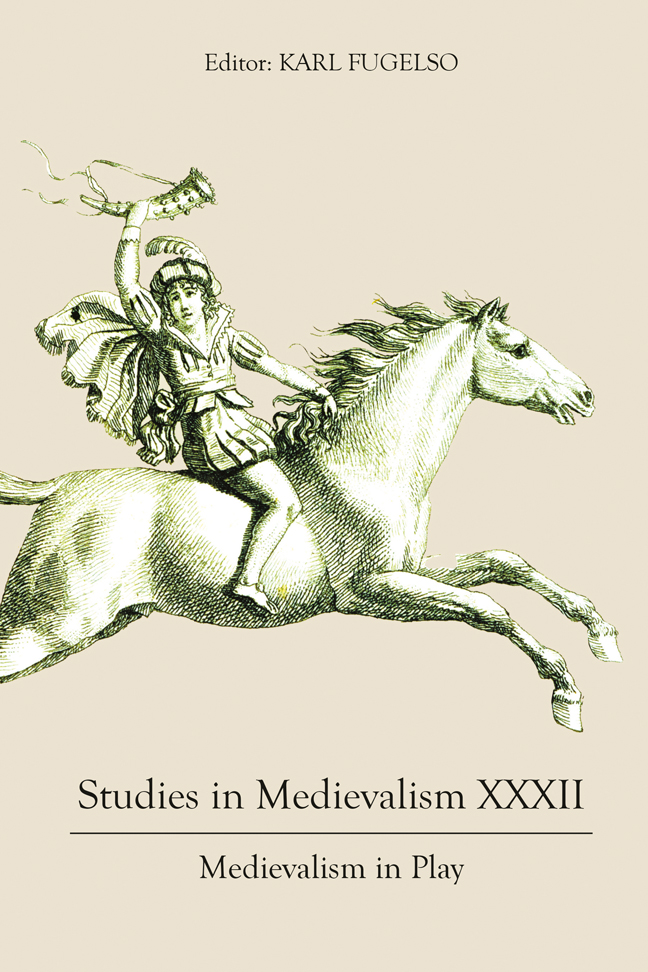Summary
As all children and many adults know, play is serious business. Whether diversion, exploration, simulation, manipulation, or some combination thereof, it is at the very heart of how one learns about and navigates through the world. Indeed, it often amounts to a trial run or strategy for fulfilling one's most basic needs or desires. And though it may take such simple forms as throwing a ball or holding a doll, it often springs from imaginary realms built on complex blends of hope, experience, values, and beliefs, such as winning the Super Bowl with a last-second pass or raising the woman who catches it.
One extraordinarily fertile source for those constructs has long been the Middle Ages. Sufficiently documented and near enough to provide some guideposts, they are nevertheless so distant and amorphous as to facilitate a wide range of interpretations. Moreover, they have benefited from an accretion of responses that have softened their edges, diminished their banalities, and romanticized their singularities. Rather than struggling farmers who supplemented their income through infrequent raids, the Vikings have become fabulously rich warriors who lived to terrorize bookish monks, drink mead, and go a-wenching. Rather than spending long hours managing extensive bureaucracies and discontented subjects, not to mention spoiled, incompetent, and/or treacherous heirs, medieval monarchs have become full-time battle-managers with heroic sons who do nothing but slay monsters and rescue damsels in distress. And when women are not those beautiful damsels or Viking victims, they are warrior princesses and/or clones of, say, an impossibly feminist Eleanor of Aquitaine.
Play therefore offers insights on not only how the Middle Ages have been perceived but also how their interpreters have seen themselves, their surroundings, and perhaps (other) aspects of the intervening period. By examining how the past is treated in, say, a video game set amid the Crusades, one may not discover anything new about the Middle Ages, but one may learn a great deal about the designers’ knowledge of that era, their anticipation of such knowledge in their audience, and, particularly in their play on and supplementing of that knowledge, their own values and beliefs.
- Type
- Chapter
- Information
- Studies in Medievalism XXXIIMedievalism in Play, pp. xiii - xviiiPublisher: Boydell & BrewerPrint publication year: 2023

